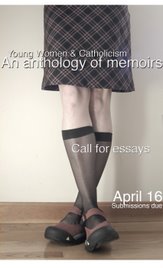 Reflecting on this week's readings, I am reminded of my first tour of the LA Catholic Worker community--the spirit of welcome that they shared, the look of the smoggy skyline from the top floors of the house, the delight they took at sharing bits of the house's story, and the photos on the walls of prophets like Dorothy Day, César Chávez, and Dan Berrigan, SJ, whose lives I had only read about. That wall of pictures had a way of making me feel like the stories were still going on, that the community carried them forward, that others would continue to do so in the days ahead.
Reflecting on this week's readings, I am reminded of my first tour of the LA Catholic Worker community--the spirit of welcome that they shared, the look of the smoggy skyline from the top floors of the house, the delight they took at sharing bits of the house's story, and the photos on the walls of prophets like Dorothy Day, César Chávez, and Dan Berrigan, SJ, whose lives I had only read about. That wall of pictures had a way of making me feel like the stories were still going on, that the community carried them forward, that others would continue to do so in the days ahead.The liturgy interwove the stories that the pictures told with those of the wider Catholic community. The presiders added to them, reflecting the diversity of those who gathered there. Whether a priest led our celebration or a layperson did, a man or a woman, celibate or not, they all communicated their passion for the Gospel with humility and sincerity. The homily was infused with the fruits of the Bible study in which the community members had participated that week; everyone had the opportunity to reflect on the Gospel after it was proclaimed. The kiss of peace lasted as long as it needed to, not complete until you had hugged or helloed everyone in the room.
Maybe it was because members of the community made the Eucharist that I remembered that most people came to the Catholic Worker literally to be fed, that no one is turned away. Maybe it was because the people there, in their brokenness, had in their hearts the radical kind of love to which Jesus calls us this week, that I felt there was room for the rest of us, too. Maybe it was because they put that love into action, in a very public way, that I was reminded of the meaning of justice. The soup that would later be served on Skid Row was blessed at the end of the communion meal, and I reflected on the cost of the kind of discipleship these women and men practiced. One of the community members played at his guitar, and we sang:
I have decided to follow Jesus.
I have decided to follow Jesus.
I have decided to follow Jesus.
No turnin' back.
No turnin' back.
The quote in the title of today's post is attributed to Cornel West, in his definition of justice.
Image Credit: Christ in the Breadlines by Catholic Worker artist Fritz Eichenberg (1901-1990).



No comments:
Post a Comment